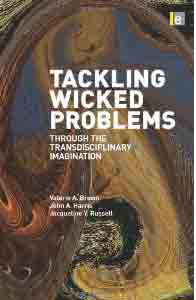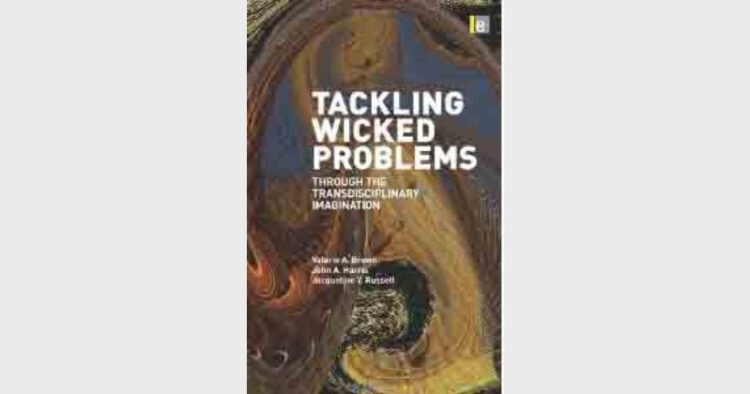
Wicked problems, sane solutions?
By Manju Gupta?
Tackling Wicked Problems through the Transdisciplinary Imagination, Valerie A. Brown, John A. Harris, Jacqueline Y. Russell, Earthscan, Pp 312?
This book, a compilation of ideas by authors with diverse interests, ages and skills, offers a unique transdisciplinay approach to inquiry which is capable of integrating the national and social sciences. Full of bold propositions about how we might reconfigure our social discourse in making decisions on complex issues, the book proposes a framework for inquiries into human and environmental problems in which “relevance to the times” is central and everyone has a vital role to play.
Apart from the many other issues facing the world in this century, the human need for food, energy and water, that is the complex social-environmental issues, have been termed as the “wicked problems” which have been contrasted with “tame problems”, which can be solved with the existing modes of inquiry and decision-making, says the author. The common thread running through a majority of the articles is the adoption of transdisciplinary approach for a collective understanding of an issue.
The book is divided into three parts, where the first part offers a sequence of ideas on the form that an open, critical, imaginative and collective inquiry might take. The first chapter in Part I gives an introduction on a just and sustainable future. In Chapter 2, R.J. Lawrence reviews the current state of the literature on trans-disciplinarity. He positions open transdisciplinary inquiry within mono, multi and transdisciplinary inquiry in general. He then applies open transdisciplinary inquiry to the ‘wicked problems’ of housing and health and a Swiss national health action plan.
In Chapter 3, JY Russell presents a framework for open and critical transdisciplinary inquiry based on the need for critical deliberations; Werner Ulrich talks of boundary questions in critical systems and Gerald Midgley, on the virtues of systemic intervention. She argues that an open critical systems approach to transdisciplinary inquiry paves the way for the kind of science that supports the resolution of wicked problems. This encompassing work is transcendent in that it includes and goes beyond how we currently organise our systems of thought.
In Chapter 4, V.A. Brown applies Russell’s framework for open and critical transdisciplinary inquiry into the design of a collective learning strategy, which brings together the multiple knowledges involved in decision-making on a wicked problem. The challenge for open transdisciplinary inquiry is to bring together the evidences from the five knowledge cultures in such a way that they can inform each other synergistically rather than, as now, competing for legitimacy. As a means of achieving his ideal, Brown adopts David Kolb’s four-stage adult learning cycle as a tool for mutual learning among decision-makers. In practice the findings at each stage of the four-stage cycle – developing ideas, describing the situation, generating new ideas and taking action – inform decisions on managing wicked problems.
The section on the future scope and possibilities presents the criteria for open transdisciplinary ecology, the review of the current status of transdisciplinarity, the theoretical framework of open critical inquiry, the collective learning made possible by combining decision-making knowledge cultures and the consideration of ignorance and uncertainty. The conclusion is that there is an emergent practice that may, however, always remain emergent given the nature of wicked problems and the demands of learning to respond to social-environmental change.
(Earthscan Ltd, Dunstam House, 14a St. Cross Street, London EC 1N 8XA, UK; www.earthscan.co.uk)
?













Comments